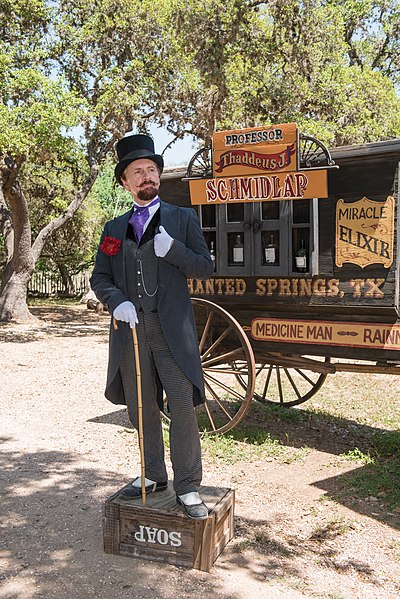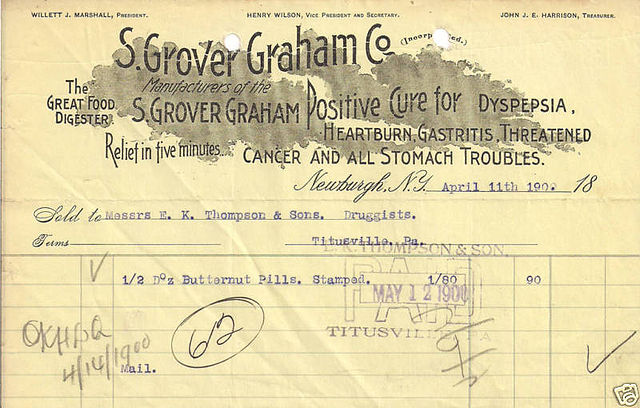Snake oil is a term used to describe deceptive marketing, health care fraud, or a scam. Similarly, snake oil salesman is a common label used to describe someone who sells, promotes, or is a general proponent of some valueless or fraudulent cure, remedy, or solution. The term comes from the "snake oil" that used to be sold as a cure-all elixir for many kinds of physiological problems. Many 19th-century United States and 18th-century European entrepreneurs advertised and sold mineral oil as "snake oil liniment", making claims about its efficacy as a panacea. Patent medicines that claimed to be a panacea were extremely common from the 18th century until the 20th, particularly among vendors masking addictive drugs such as cocaine, amphetamine, alcohol, and opium-based concoctions or elixirs, to be sold at medicine shows as medication or products promoting health.
A historical reenactor representing a travelling snake-oil salesman from the United States in 2014.
A report of the 1917 decision of the United States District Court for Rhode Island, fining Clark Stanley $20 for "misbranding" its "Clark Stanley Snake Oil Liniment".
A patent medicine is a non-prescription medicine or medicinal preparation that is typically protected and advertised by a trademark and trade name, and claimed to be effective against minor disorders and symptoms, as opposed to a prescription drug that could be obtained only through a pharmacist, usually with a doctor's prescription, and whose composition was openly disclosed. Many over-the-counter medicines were once ethical drugs obtainable only by prescription, and thus are not patent medicines.
Sick Made Well, Weak Made Strong, Elixir of Life, etc. Typical ad for patent medicine.
Kilmer's Swamp Root
Receipt from 1900 for a patent medicine claiming a "Positive Cure for Dyspepsia, Heartburn, Gastritis, Threatened Cancer and all Stomach Troubles" with "Relief in five minutes"





